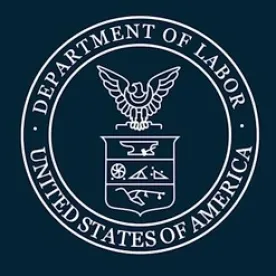On October 11, 2022, the US Department of Labor (DOL) issued a notice of proposed rulemaking that would revisit the definition of an independent contractor under the Fair Labor Standards Act (FLSA).
By way of brief background, in January 2021, a Trump-era final rule went into effect which made it easier for employers to designate workers as independent contractors rather than employees under the FLSA. The rule instituted an “economic dependence” test to determine whether workers qualified as employees, considering two “core” factors:
-
The nature and degree of the worker’s control over his work (including whether the worker is required to work exclusively for the employer during the engagement, or has a non-compete agreement afterward); and
-
The opportunity for the worker to sustain financial profit and loss.
Under the Biden Administration, in May 2022 the DOL attempted to rescind the Trump-era rule; however, its efforts were overturned by a federal court in the Eastern District of Texas. On June 3, 2022, the DOL announced that it would instead be developing a new proposed rule on determining independent contractor status under the FLSA, and later that month, the DOL held forums to hear perspectives on the proposed rulemaking.
Now, in October 2022, the DOL has issued the Notice of Proposed Rulemaking for public review and comment. The DOL states that it has moved quickly because “retaining the 2021 IC Rule would have a confusing and disruptive effect on workers and businesses alike.”
In the Notice of Proposed Rulemaking, the DOL recommends:
-
Rescinding the 2021 IC Rule;
-
Not using “core factors” and instead returning to a totality-of-the-circumstances analysis of the economic reality test;[1]
-
Returning the consideration of the worker’s capital or entrepreneurial investment to a standalone factor;
-
Providing additional analysis of the control factor, including discussion of how to consider scheduling, supervision, price-setting and the ability to work for others; and
-
Returning to the DOL’s established interpretation of the integral factor, which considers whether the work is integral to the employer’s business rather than whether it is part of an “integrated unit of production.”
Publication of the Notice of Proposed Rulemaking in the Federal Register started a 45-day comment period, which will close on November 28, 2022. ArentFox Schiff will continue to monitor developments in this area. Needless to say, if the proposed rule is adopted, it will be more difficult to classify workers as independent contractors for FLSA purposes. It should be noted that other federal and state agencies may apply different tests for independent contractor status in different circumstances, which tests may be more or less stringent than the DOL’s proposed rule.
FOOTNOTES
[1] Under this approach, courts consider six non-exhaustive factors in determining worker status: (1) the degree of the employer’s right to control the manner in which the work is to be performed; (2) the worker’s opportunity for profit or loss depending upon his or her managerial skill; (3) the worker’s investment in equipment or materials required for his or her task, or employment of helpers; (4) whether the service rendered requires a special skill; (5) the degree of permanence of the working relationship; and (6) whether the service rendered is an integral part of the employer’s business. The factors do not have a predetermined weight and are instead considered in view of the economic reality of the whole activity




 />i
/>i

